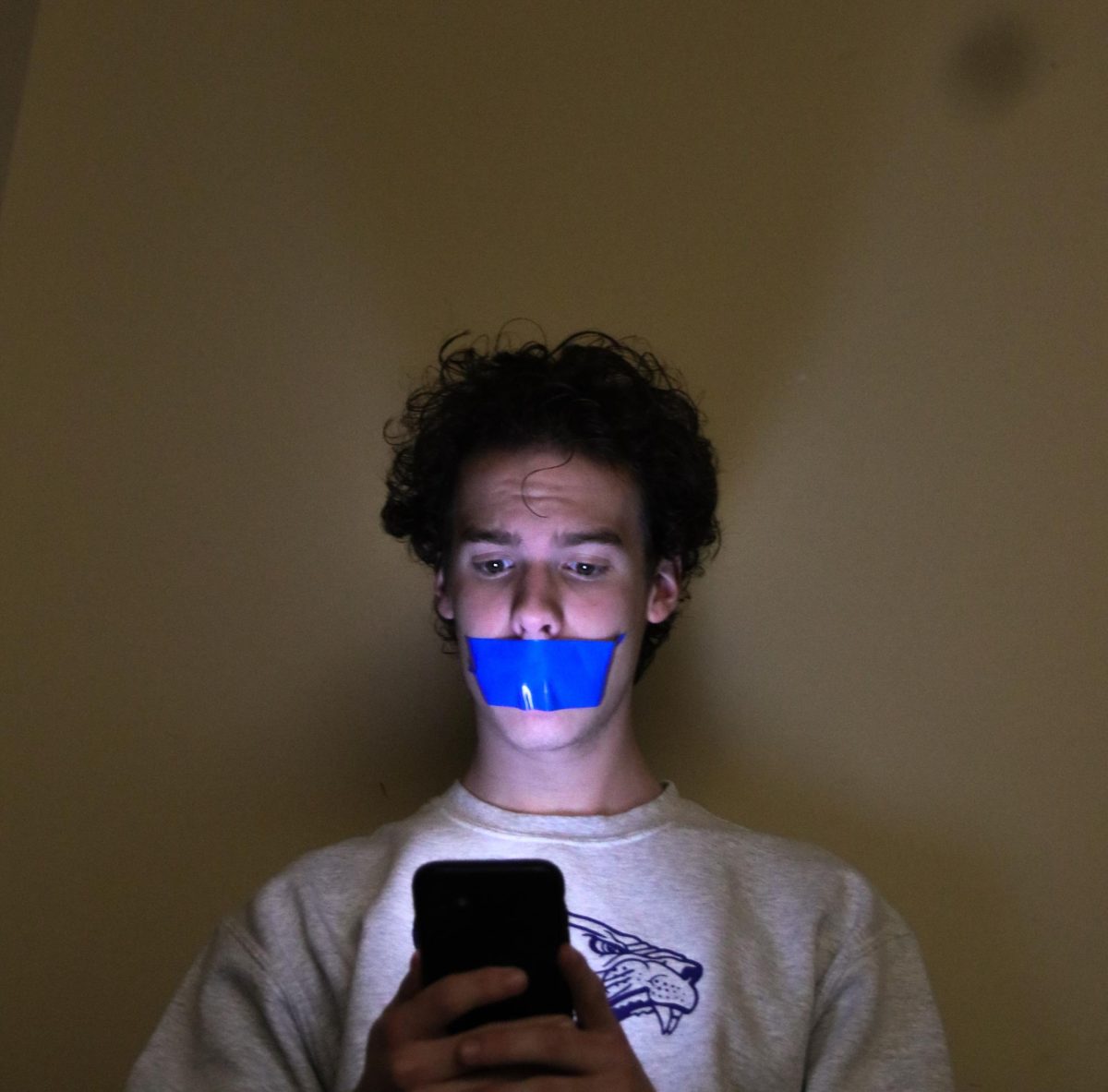The government is becoming more and more involved in the personal lives of citizens. Not only have they been patrolling traffic lights with cameras much more than they used to, but they are also able to use cell phones, Facebook, and cars to track and eavesdrop on citizens.
Using the data from a Blackberry or other cell phone, the government can track a person’s whereabouts. In February, the FBI and other police agencies obtained the right to acquire the locations of American’s cell phones without a warrant.
“I carry my phone with me all the time, so being able to see where I am 24/7 is a complete invasion of privacy,” said Brooke Cusumano, sophomore.
The Obama administration believes no rights to be violated when a phone company reveals its records to the government. When they get historical cell phone location information, it effectively transforms them into electronic trackers that show how long ago someone has been there and how long they were there, without the person’s consent or knowledge.
“I think that kind of tracking could be useful against criminals, but for the average citizen it’s just another way the government is trying to control our lives,” said Julia Davis, sophomore.
Warrantless location tracking can be useful for the government, if utilized relevantly to solve ongoing criminal investigations. This kind of technology can be extremely beneficial in tracking down criminals and terrorists, but use without a warrant causes dispute on whether it is a violation of the Fourth Amendment.
The Fourth Amendment states the people’s right to be “secure in their persons, houses, papers, and effects against unreasonable searches and seizures, shall not be violated, and no Warrants shall issue, but upon probable cause, supported by Oath or affirmation.” Because of the lack in cell phones at the time this amendment was put into practice, how to apply it to cell phone tracking is controversial.
“People are overreacting about the whole tracking thing. They will not be using their new systems to track normal citizens; there is no point in them doing that. They will only be using it against people that they really need to track, like terrorists. It’s really no big deal,” said Emily Sulewski, eighth grade.
The point of the government’s warrantless search ability is unclear, but it brings about an easier process to obtain cell records of people they are legitimately trying to track for security reasons. It is unsure whether they have or will use the privilege of this tracking system solely for the necessary purpose of finding locations of criminals, or violate its purpose and use what some call unnecessary power to unlawfully track the whereabouts of normal citizens.
“I would understand if the government had a good reason and a warrant to track someone’s cell phone location, but without one, it seems absolutely unnecessary to be able to track average citizens. I don’t think they care about where we go anyways. Why not just get a warrant when it’s necessary?” said Cusumano.
Students also have opinions about the possibility of the government eavesdropping on cell phones.
“I think that if [the government] thinks [listening in on cell phones] is necessary to keep our country safe, then it’s okay. They really don’t care what we say to our friends or boyfriends on the phone, that’s not the kind of stuff they’re going to eavesdrop on people for,” said Abbey Andres, sophomore.
This is not the first time that the government has been able to tap cell phones. The USA PATRIOT Act (United and Strengthening America by Providing Appropriate Tools Required to Intercept and Obstruct Terrorism Act of 2001) was put into action by the Bush Administration in October after the September 11 attacks. It dramatically reduced the restrictions on law enforcement agencies ability to search records such as telephone and email connections.
“Listening in and tracking cell phones has been done before, so what’s the big deal now? Even if they did track normal citizens, why does it matter? It’s not like we’re doing anything illegal by going to the grocery store, so who cares if they know?” said Sulewski.









